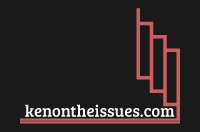Monetization of a personal blog has become an increasingly popular way for bloggers to transform their passion projects into profitable ventures. In today’s digital landscape, where content creation is a valuable asset, turning a blog from a hobby into a source of income is not only achievable but can be highly rewarding. The ability to earn money from blogging allows individuals to combine creativity with entrepreneurship, offering them the freedom to work independently while pursuing their interests. This article will explore how bloggers can set financial goals, grow their audience, and implement various monetization strategies to create a sustainable income stream.
Defining Blog Goals and Audience
The first step towards monetizing a blog is setting clear financial goals. Many bloggers start without a structured plan, hoping to eventually generate income, but having concrete goals makes it easier to track progress and measure success. Whether the aim is to earn a part-time income or transform blogging into a full-time career, knowing your desired outcome is essential. Goals should be specific, measurable, and realistic, such as earning a certain amount per month or attracting a particular number of unique visitors. This not only keeps you focused but also allows you to evaluate which monetization methods align with your objectives.
Equally important is a deep understanding of your target audience. Before exploring different monetization strategies, you need to identify who your readers are, what they need, and how they interact with your content. Knowing your audience’s demographics—such as age, location, and interests—helps in tailoring both content and monetization methods that resonate with them. For instance, a blog catering to young professionals might perform well with career-related affiliate products, while a lifestyle blog could focus on beauty or wellness brand partnerships. The better you understand your audience, the more effectively you can monetize.
Your financial goals and audience will ultimately influence which monetization strategies are most suitable for your blog. A blog with high traffic may benefit more from advertising, while a niche blog with a highly engaged audience might find success through affiliate marketing or product sales. It’s important to regularly revisit your goals and analyze audience feedback to refine your monetization strategies. This flexibility allows you to adapt to changes in the blogging landscape and grow your revenue over time.
Additionally, it’s crucial to stay true to your blog’s mission while pursuing monetization. Readers will notice if your blog suddenly becomes cluttered with ads or irrelevant promotions. The balance between monetization and maintaining the integrity of your content is key to building long-term success. Authenticity will keep your audience engaged, ensuring that your efforts to monetize don’t drive them away.
Creating Quality Content and Growing Your Audience
Content is the cornerstone of any successful blog, and high-quality, unique content is essential for both audience growth and monetization. Your blog should provide value to your readers, whether through informative articles, engaging stories, or practical tips. Focusing on creating content that solves problems, answers questions, or entertains ensures that readers return to your blog regularly. The more valuable and relatable your content is, the easier it will be to attract and retain an audience, which is critical for monetization efforts.
Increasing blog traffic is another vital aspect of making a blog profitable. There are various strategies to drive more visitors to your blog, including search engine optimization (SEO), social media promotion, and guest blogging. SEO helps your blog appear in search results when users look for topics related to your content, which can lead to consistent organic traffic over time. Social media promotion, on the other hand, enables you to connect with readers on platforms they frequently use, like Instagram, Twitter, and Facebook. Sharing your blog posts on social media increases visibility and encourages more people to visit your site.
Once you have built an audience, retention and engagement become critical for sustaining long-term success. Engaged readers are more likely to share your content, purchase products, or click on ads, all of which contribute to your blog’s revenue. To retain your audience, consider creating a community through comments, email newsletters, or social media interactions. Offering exclusive content, running contests, or holding Q&A sessions are just a few ways to increase engagement and make your audience feel connected to your blog. A loyal readership forms the foundation for effective monetization.
Another effective method to maintain reader loyalty is through consistent posting. Setting a regular publishing schedule and sticking to it shows your readers that you are committed to providing fresh and valuable content. This reliability fosters trust, which is essential when you introduce monetization strategies, such as affiliate links or premium content, as readers will be more likely to support your efforts if they view you as a dependable source of information.
Monetization Strategies for a Personal Blog
There are several monetization strategies available for bloggers, and the key is finding the right mix that works for your blog and audience. One of the most common methods is through advertising, such as banner ads and contextual ads. Programs like Google AdSense allow bloggers to display ads on their site and earn revenue based on impressions or clicks. While ads can generate passive income, they usually require a high volume of traffic to be significantly profitable. Therefore, this strategy may be better suited for blogs with a large readership.
- Another effective way to monetize a blog is through affiliate marketing. This involves promoting products or services relevant to your niche and earning a commission for each sale made through your referral links. Affiliate marketing works particularly well for blogs that offer product reviews, tutorials, or recommendations, as these types of content naturally lend themselves to product placements.
- For bloggers with a unique skill set or expertise, selling products or services can be a lucrative option. This could include digital products like eBooks, online courses, or printables, as well as physical products or consulting services. By creating your own offerings, you have more control over pricing and profit margins. Moreover, selling products directly to your audience can significantly boost your income if done correctly. The challenge is ensuring that these products or services are aligned with your audience’s needs and are of high quality.
- Sponsorships and brand collaborations provide another lucrative avenue for blog monetization. As your blog grows in popularity, brands may approach you for sponsored posts or collaborations. In this case, companies pay you to write about their products or services, usually in the form of reviews or mentions. It’s essential to only collaborate with brands that align with your blog’s niche and values, as promoting unrelated products can damage your credibility. Additionally, full disclosure of sponsorships maintains transparency with your audience, ensuring they trust your recommendations.
Tools and Resources for Blog Monetization
To successfully monetize a blog, it’s important to utilize the right tools and platforms that facilitate advertising, affiliate marketing, and other revenue-generating activities. For advertising, platforms like Google AdSense, Ezoic, and Mediavine offer automated services that place relevant ads on your blog. These platforms allow you to earn money from clicks and impressions while focusing on creating content. Choosing the right platform will depend on your traffic levels and the type of audience you attract.
In addition to ad platforms, analytics tools like Google Analytics and MonsterInsights are essential for tracking the effectiveness of your monetization strategies. These tools provide insights into which pages generate the most revenue, what types of content perform best, and how readers interact with your ads and affiliate links. By understanding these metrics, you can fine-tune your content and monetization efforts to maximize income.
Plugins and integrations also play a significant role in blog monetization. For WordPress users, there are numerous plugins available that simplify the integration of affiliate links, manage ads, and create membership sites. Plugins like Pretty Links can help you manage and track affiliate links, while WooCommerce allows you to sell products directly from your blog. Other tools like OptinMonster can be used to grow your email list, which in turn can be leveraged for promoting products, services, or premium content.
In conclusion, monetizing a personal blog requires a blend of creativity, strategic thinking, and the right tools. By setting clear goals, understanding your audience, and consistently producing valuable content, bloggers can implement various monetization strategies to turn their hobby into a lucrative business. With persistence and a focus on quality, what starts as a passion project can evolve into a sustainable source of income, offering financial freedom and personal fulfillment.
In addition, we would like to recommend you our other article, where we talked about why personal blogging.
FAQ
Setting clear financial goals helps bloggers track progress and measure success in monetization efforts. Whether aiming for part-time income or a full-time career, specific and realistic goals guide the choice of monetization methods that align with these objectives.
Understanding your audience’s demographics and interests is crucial for tailoring both content and monetization methods. This knowledge helps in choosing strategies like affiliate marketing or brand partnerships that resonate with your readers, thereby increasing effectiveness in monetization.
Authenticity is essential in maintaining reader trust while pursuing monetization. It ensures that promotional efforts remain relevant to your blog’s mission and audience interests, preventing disengagement or backlash. Balancing monetization with authenticity helps build sustainable long-term success.

